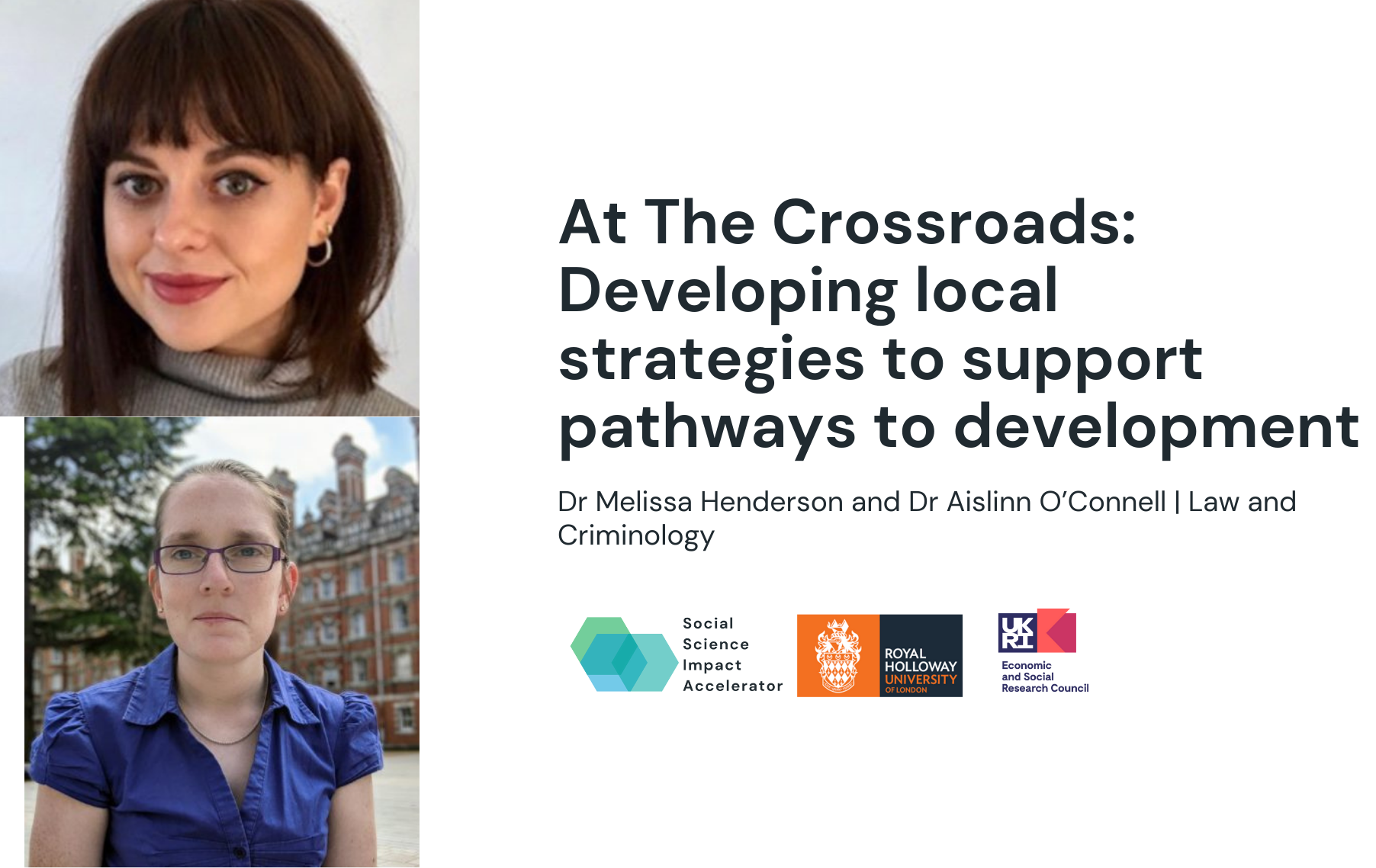At The Crossroads is a cross-sectoral project seeking to improve employment outcomes in the area surrounding Royal Holloway.

Award: Open Innovation
Academics: Project leads - Dr Melissa Henderson and Dr Aislinn O’Connell, Project Advisor - Prof Jessie Ricketts
Department: Law and Criminology
Project: At The Crossroads: Developing local strategies to support pathways into employment
Context and Underpinning Research
In October 2023, Royal Holloway invited leaders from key regional organisations (local authorities, health, education and policing sectors, and community and business networks) to an advisory roundtable to discuss local challenges and opportunities. A theme emerged around the lack of collaboration between skills and education providers, and industry. This supports one of the priorities that arose from the Berkshire and Surrey Local Skills Improvement Plans (LSIPs) to address the skills gap. The LSIP acknowledged:
- New technologies, automation, AI and climate change are increasing the need for employee upskilling
- Many residents lack functional and language skills, particularly in Slough
- Higher-level technical skills are becoming imperative in the growing digital sector
- Increased demand for healthcare and social care services, and a shortage of workers, due to an ageing population
- Increased competition for jobs from outside our region as employers can accommodate remote working
- High cost of living and a lack of affordable housing
Project Overview
This project involves three phases:
- Roundtable conference in partnership with educational charity Cumberland Lodge, bringing together delegates from key regional organisations
- Initial recommendations and report organised around six key themes: visible options, collaborative signalling, alternative pathways, role models and mentors, valuing diversity and active voices
- Innovation pilots and evidence gathering
The project aims to address the regional skills gap by enabling multi-sector collaboration and ensuring that stakeholders benefit from social science academic research and methodologies to underpin innovative solutions. The project seeks to produce new evidence-led approaches to develop career progression, with a focus on creating long-lasting structures to increase collaboration between education and industry. It also aims to incorporate youth perspectives into recruitment and promotion initiatives in priority skills areas, and improve the regional approach to employee upskilling and cross-skilling.
Anticipated Outcomes and Impact
- A report will be published with practical recommendations, aiming to contribute to an improved system for collaboration between education providers and industry.
- The team will launch two pilot projects. The first focuses on role models and mentors, with a view to use mentoring practises to support career pathways and skill development. The second identifies how we can create systems to embed oracy as an employability skill. Working in partnership with national charity Voice 21, the aim is to help schools build speaking and listening into the curriculum.
The Role of SSIA Funding
The SSIA funding will cover the costs of the conference, creation and distribution digital knowledge exchange content and report production. It will also fund innovation pilots with regional partners that attended the conference.
Next steps:
As of September 2024, the report and outputs will be disseminated, followed by the launch of innovation pilots with local partners. The final stage will be reviewing and measuring the overall impact of the project.
Get involved:
We would invite anyone interested in the key themes within this project to engage with the webpage and for anyone who would like to get involved in the pilot projects to email the project leads Melissa.Henderson@rhul.ac.uk and Aislinn.OConnell@rhul.ac.uk

























